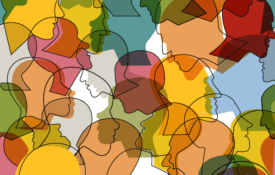-

New Research From Clinical Psychological Science
A sample of research on psychopathology classification, meditation’s adverse effects, trauma and memory, obsessive compulsive disorder, placebo effects, inferences training, disgust and moral rigidity, and psychotic-like experiences. Visit Page
-
Teens Who Spend Moderate Time Online Cope Better With Psychological Stress Than Others, Study Reveals
Teens could spend their whole day doing activities that drain their energy, which sometimes gives them psychological stress. But they also develop different coping strategies to destress, such as spending time online. A new study, titled "Adolescents' Online Coping: When Less Is More but None Is Worse" published in Clinical Psychological Science, revealed that teens ages 13-17 in low socioeconomic settings who spend moderate time online cope better with stress compared to those who spend several hours online and those who completely neglect it.
-

Skeptical ‘Deep Dive’ on the Myers-Briggs Test
Perhaps the best known personality test is the Myers-Briggs Type Indicator. This episode takes a deep dive into the skeptical side of this topic with Dan McAdams, a professor of psychology at Northwestern University. Visit Page
-

APS Fellow Jennifer Richeson Named to White House Science Council
The Yale psychology professor has been appointed to an influential group charged with directly advising the president and the White House on science, technology, and innovation. Visit Page
-
How Music Can Literally Heal the Heart
In a maverick method, nephrologist Michael Field taught medical students to decipher different heart murmurs through their stethoscopes, trills, grace notes, and decrescendos to describe the distinctive sounds of heart valves snapping closed, and blood ebbing through leaky valves in plumbing disorders of the heart.
-

New Research in Psychological Science
A sample of research on aging, meditation and yoga, school punishment, acculturation, face-based judgments, auditory perception, working memory, and immigration. Visit Page


